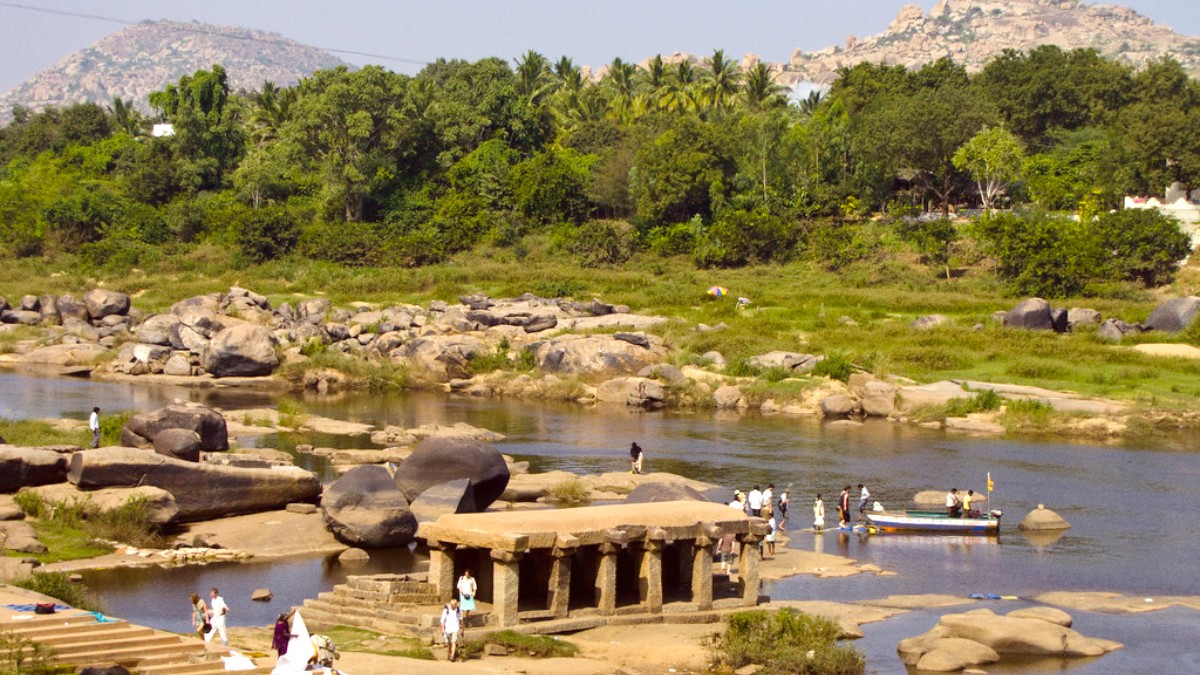
Karnataka, India
The region experiences three distinct seasons, each bringing different conditions for exploration.
Summer months, especially April and May, bring very high temperatures. This makes midday outdoor activities challenging. Plan sightseeing for early mornings and late afternoons. Hydration is important throughout the day.
From June to September, heavy rains occur. This can lead to slippery paths around the ruins and temporary closures of some smaller routes. River levels may rise, impacting coracle boat services. Check local conditions during this period.
October to February
Ideal weather for all sightseeing and outdoor activities.
Higher prices for accommodation and flights are common. Popular sites experience larger crowds. Booking ahead recommended.
March & September
March offers warm but manageable temperatures. September offers a lush green landscape with fewer crowds.
Late March can become uncomfortably warm. September may still experience some rainfall and higher humidity.
April to August
Significant discounts on accommodation. Very few crowds visit the sites. Post-monsoon months offer lush greenery.
Extreme heat in April and May makes daytime outdoor exploration difficult. Monsoon rains can cause disruptions.
South Indian thalis and street food from busy, reputable vendors for lower costs.
For independent exploration (around 200-300 INR/day scooter, 50-100 INR/day bicycle).
Always agree on auto-rickshaw or taxi fares before starting your journey. Bargaining is expected.
Hampi offers numerous affordable guesthouses and homestays, especially in Hampi Bazaar and Virupapur Gaddi.
Purchase large bottles of water, or use a Personal water filter bottle. This saves money and reduces plastic waste.
India has various visa types, with the e-Visa most common for tourists.
Citizens from over 160 countries can apply for an e-Visa online. This process covers e-Tourist, e-Business, and e-Medical Visas. The e-Tourist Visa allows for a stay of up to 60 days with double entry for most nationalities.
Awareness of local conditions and preparedness helps manage risks effectively.
Comprehensive travel insurance is a good idea. Your policy should cover medical emergencies, emergency evacuation, trip cancellation or interruption, baggage loss, and personal liability.
For serious medical emergencies, travel to a hospital in Hospet. Inform your travel insurance provider immediately after contacting local emergency services. Keep copies of your insurance details readily available.
Hampi has basic clinics for minor ailments.
Nearest well-equipped hospitals in Hospet (approx. 13 km), e.g., KIMS.
Limited within Hampi core. Contact police or seek help in Hospet.
Always carry emergency contact information and travel insurance details.
Notify family/friends of your itinerary. Remain flexible and adaptable to local conditions.
Understand health advisories. Be mindful of petty theft in crowded areas. Verify tour guides and services.
Despite general safety, awareness of potential risks enhances travel.
Charge your phone fully before outings for navigation and emergencies.
Carry physical and digital copies of your passport and visa separately.
Bring a small amount of local currency (INR) for immediate expenses upon arrival.
Awareness of local conditions and preparedness helps manage risks effectively.